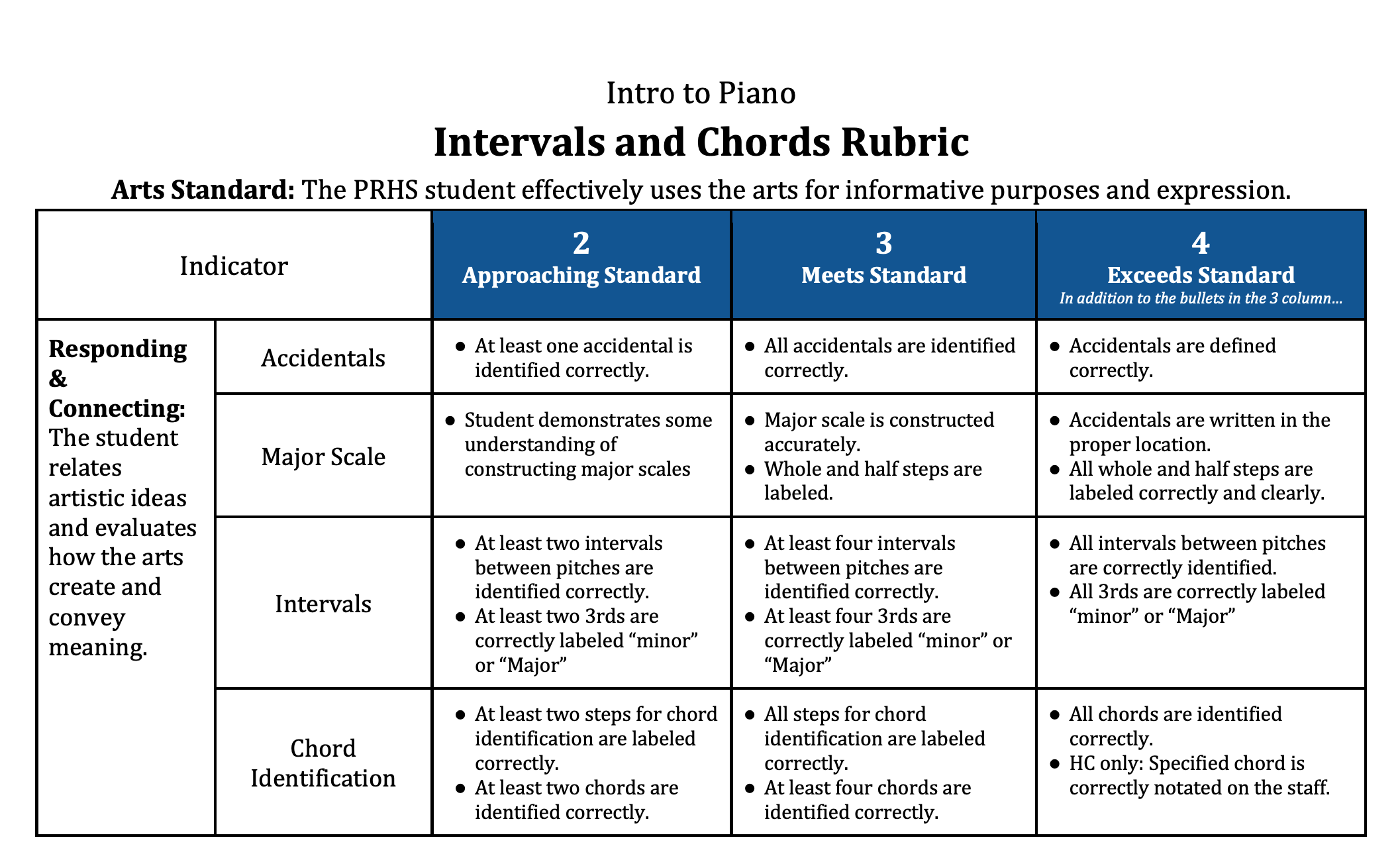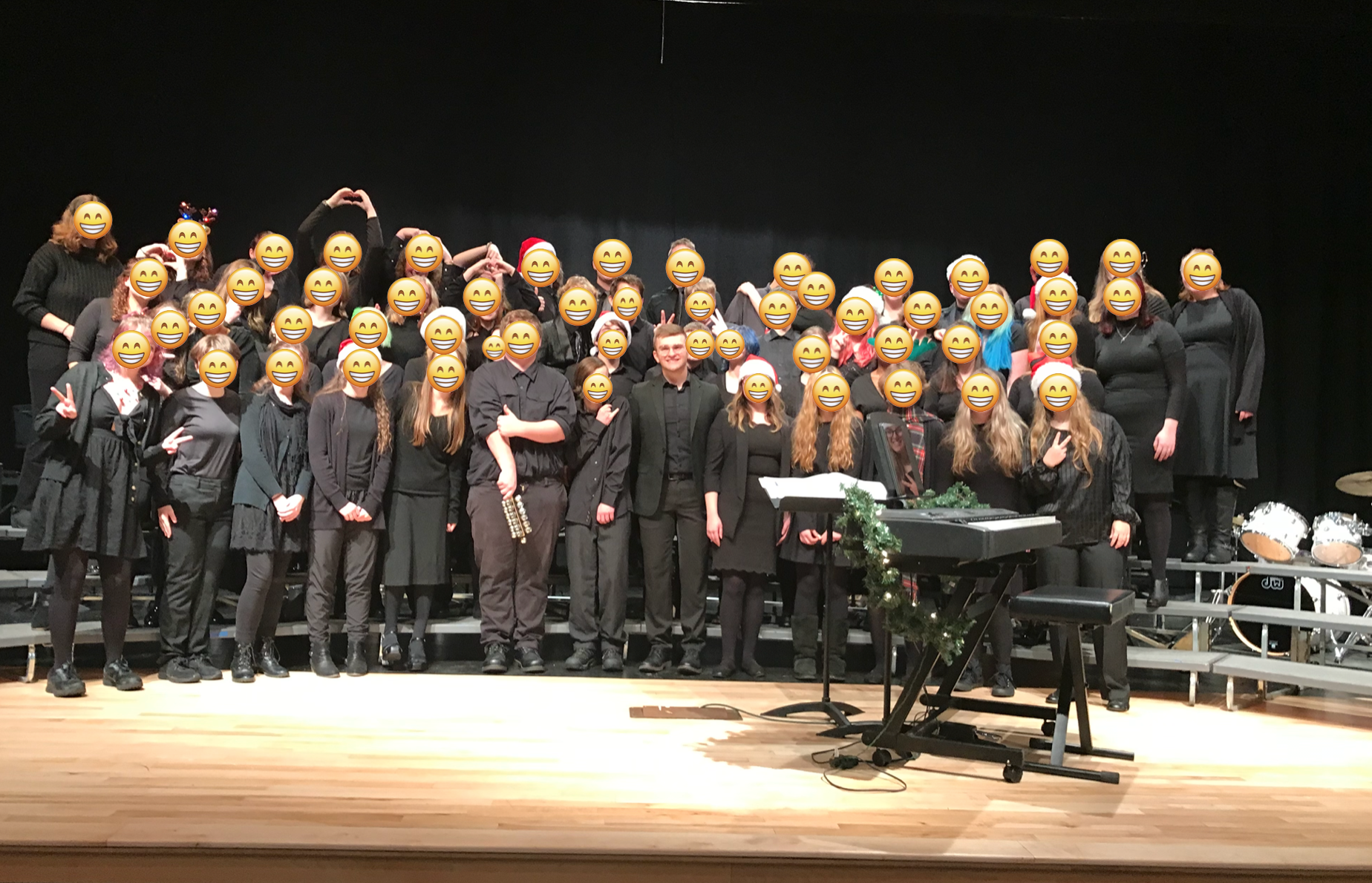Standard #1: Learner Development
The teacher understands how learners grow and develop, recognizing that patterns of learning and development vary individually within and across the cognitive, linguistic, social, emotional, and physical areas, and designs and implements developmentally appropriate and challenging learning experiences.
Score Scavenger Hunt: Middle School Chorus
Score Scavenger Hunt: High School Chorus
Standard 2: Learning Differences
The teacher uses understanding of individual differences and diverse cultures and communities to ensure inclusive learning environments that enable each learner to meet high standards.
Choral Analysis Unit with Honors Challenge adaptations.
Standard #3: Learning Environments
The teacher works with others to create environments that support individual and collaborative learning, and that encourage positive social interaction, active engagement in learning, and self- motivation.
As a class, students agreed upon norms for the classroom in a guided discussion.
A class agenda is projected at the beginning of every class. This provides a sense of routine and creates clear expectations for the day. A QR code is on this agenda for students to give anonymous shout-outs to their peers.
Standard #4: Content Knowledge
The teacher understands the central concepts, tools of inquiry, and structures of the discipline(s) he or she teaches and creates learning experiences that make these aspects of the discipline accessible and meaningful for learners to assure mastery of the content.
Standard #5: Application of Content
The teacher understands how to connect concepts and use differing perspectives to engage learners in critical thinking, creativity, and collaborative problem solving related to authentic local and global issues.
This semester, middle school Chorus is working on Handel’s “Art Thou Troubled?” adapted from the aria “Dove Sei, Amato Bene?” This slideshow was used to introduce students to opera, and provide context for their performance.
Standard #6: Assessment
The teacher understands and uses multiple methods of assessment to engage learners in their own growth, to monitor learner progress, and to guide the teacher and learner’s decision-making.
Standard #7: Planning for Instruction
The teacher plans instruction that supports every student in meeting rigorous learning goals by drawing upon knowledge of content areas, curriculum, cross-disciplinary skills, and pedagogy, as well as knowledge of learners and the community context.
Score study with anticipated issues and solutions.
Standard #8: Instructional Strategies
The teacher understands and uses a variety of instructional strategies to encourage learners to develop deep understanding of content areas and their connections, and to build skills to apply knowledge in meaningful ways.
Standard #9: Professional Learning and Ethical Practice
The teacher engages in ongoing professional learning and uses evidence to continually evaluate his/her practice, particularly the effects of his/her choices and actions on others (learners, families, other professionals, and the community), and adapts practice to meet the needs of each learner.
Standard #10: Leadership and Collaboration
The teacher seeks appropriate leadership roles and opportunities to take responsibility for student learning, to collaborate with learners, families, colleagues, other school professionals, and community members to ensure learner growth, and to advance the profession.
Professional Development: Handouts from Dr. Kristina Caswell MacMullen at the 2022 Maine ACDA Fall Conference.
Photos from Poland Regional High School’s 2022 Winter Concert












